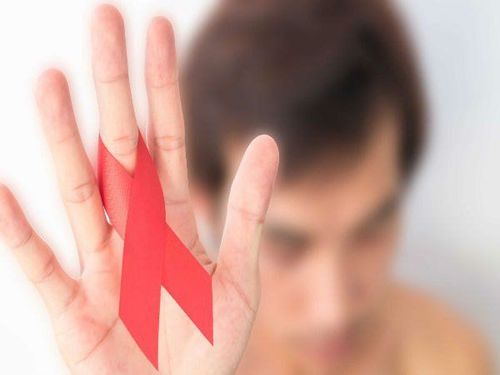This is an automatically translated article.
Becovira belongs to the group of drugs that treat parasites, anti-infectives, antivirals, and antifungals. The drug is indicated in the case of prevention of HIV transmission from mother to child during labor. Let's learn how to use and note when using Becovira in the article below.1. What is Becovira?
Becovira medicine contains the ingredient Nevirapin 200mg and other excipients provided by the manufacturer. The drug is prepared in the form of tablets, packed in a box of 6 blisters, each blister has 10 tablets.AIDS is a chronic disease caused by HIV disease. The HIV virus has the ability to destroy cells of the immune system that may no longer be able to fight off disease-causing viruses, bacteria, and fungi. Therefore, HIV-infected patients are more susceptible to cancers and opportunistic infections that are normally resistant. The drug inhibits HIV growth and replication at different stages of the virus' life cycle. Nevirapine is a non-nucleoside reverse transcriptase inhibitor (NNRTI). This active substance binds directly to reverse transcriptase. Nevirapine is an anti-AIDS drug used in pregnant women with HIV and in newborns that can help reduce mother-to-child transmission of HIV by about 50%. As a result, Becovira becomes the first-line drug to prevent mother-to-child transmission in many developing countries with high rates of HIV infection.
2. What are the effects of Becovira?
Becovira drug is indicated for treatment in the following cases:Becovira drug is indicated for use in combination with other drugs to treat HIV - 1. When monotherapy with Becovira drug, the virus becomes resistant quickly and synchronously. Therefore, Becovira should always be used in combination with at least 2 antiretroviral drugs. For HIV-negative women who have not been treated with antiretroviral drugs at the time of labor, Becovira is indicated for the prevention of mother-to-child transmission of HIV-1 with a single oral dose to the mother during labor and a single oral dose. for children after birth. In the case of conditions, it is recommended to use in combination with other antiretroviral drugs for pregnant women before giving birth to minimize the risk of mother-to-child transmission of HIV-1. In addition, Becovira is contraindicated in the following cases:
Patients who are allergic to the active ingredient Mupirocin and other excipients contained in the drug's ingredients. Becovira should not be re-administered to patients who have had to be permanently discontinued due to the occurrence of adverse reactions such as severe rash, rash with systemic symptoms, hypersensitivity reactions, or hepatitis with other symptoms. clear clinical signs that are caused by the use of Becovira. Becovira should not be re-administered to patients who had previously had ASAT and ALAT levels greater than 5 times the upper limit of normal (ULN) during treatment with Becovira and whose liver dysfunction appeared again. quickly after taking Becovira.
3. Dosage and how to use Becovira
The drug is made in the form of tablets, so patients take it orally. Patients should take the medicine at a fixed time each day to avoid forgetting to take the medicine. The drug can be taken at any time of the day, food does not affect the absorption of the drug.The total daily dose of the drug should not exceed 400mg for any patient receiving Becovira. Below is the dose of Becovira:
Adults:
Take 1 tablet per day, for the first 14 days (patients need to take the recommended dose in the beginning to help reduce the frequency of rashes), then use with a dose of 1 tablet x 2 times / day in combination with other antiretoviral drugs. Children:
Children from 2 months to 8 years: Use at a dose of 4mg/kg x 1 time/day, continue with that dose for 14 days, then increase to a dose of 7mg/kg x 2 times/day . Children about 8 years old: Use at a dose of 4mg/kg x 1 time/day, continue with that dose for 14 days, then increase to a dose of 4mg/kg x 2 times/day. Prophylaxis of HIV infection during labor:
Maternal dose: Take a single dose of 200mg and should be used as soon as possible during labor. Dosage for infants: Use with a single dose of 2mg/kg and within 72 hours of birth to limit the risk of HIV-1 infection from the mother. Note: The above dosage is for reference only. The treating doctor will base on the medical condition and health of each patient to prescribe the appropriate dose.
4. Becovira side effects
Doctors always consider between the benefits that Becovira brings to the patient and the possible risk of side effects to prescribe the appropriate medication.Some possible side effects when taking the drug are recorded including:
Rash, Steven - Johnson syndrome, toxic epidermal necrolysis, hepatitis, somnolence, jaundice. Digestive disorders, nausea, vomiting, abdominal pain, diarrhea, loss of appetite, muscle pain, insomnia. Note: In case the patient occurs side effects that are not mentioned in the instruction sheet. Inform your doctor or medical officer immediately if you suspect any side effects of Becovira.
5. Becovira drug interactions
There may be drug interactions between Becovira and drugs such as Ketoconazole, Methadone, Saquinavir. Therefore, caution should be exercised when combining these drugs during treatment with Becovira.To avoid interactions, before being prescribed Becovira, the patient should inform the doctor about the drugs they are using, including functional foods. The doctor will base on that to prescribe the appropriate Becovira.
6. Notes when using Becovira
Some notes when patients taking Becovira drug are as follows:For patients with liver or kidney dysfunction, it is necessary to perform clinical chemistry tests of liver and kidney function before starting the drug and each course. appropriate during treatment with Becovira. Pregnant women: There are no adequate and well-controlled studies in pregnant women for the treatment of HIV infection - 1. Becovira should be used during pregnancy only if directed by a doctor after reviewing it. consider the benefits of treatment outweigh the potential risks to the fetus. Becovira has been shown to be safe and effective in preventing mother-to-child HIV transmission with a single oral regimen. Lactation: Mothers infected with HIV should not breastfeed to avoid the risk of HIV transmission after giving birth to their babies. Mothers prescribed Becovira need to stop breastfeeding to ensure that it is safe to not transmit HIV to their babies.













